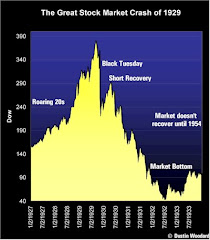The CBC has been sensing a rise in animosity between the private sector and the public sector. They wanted me to discuss this across Canada in several morning call in shows.
It was important to be prepared and I wanted to do some research. The CBC was speaking about the "private sector vs the public sector".
In my blog I was seeing a rising sense of hostility towards the public sector by taxpayers.
Several situations have pushed this issue to the forefront. Strikes in Ontario in the cities of Toronto and Windsor. The release of Sunshine Lists across Canada and the resulting outrage. As well there have been several media articles discussing the gap between public sector and private sector compensation levels.
One media interview I found to be quite interesting. It was an interview on CBC's The Current between Catherine Swift and the President of CUPE. The link to it can be found here Labour Concessions - CUPE
Several articles have come out questioning the intentions and motivations of the public sector unions.
Notable: * Political Garbage in the Ottawa Citizen
* Globe and Mail's - Unions Living in Dreamland
* McParland: The shared greed of fat cats and public sector unions
As I investigated the connection between unions and what is happening I looked to Statscan and the numbers behind unions. Union Membership in Canada — 2007 There is indeed a correlation between the unions and gold-plated pensions. It appears they are symbiotic.
The Statscan union analysis hows that most of the unions in existence today are in the public sector. The public sector ones are monsters indeed, in terms of size and membership.
Check out the CUPE web site. Here are some of the words they use to describe the works they do on behalf of members.
our Strategic Directions 2007 – 2009 policy paper is a multi-million dollar commitment to fight privatization in all of its forms, wherever it arises across the country. Privatization is our biggest threat and we must always fight to protect public sector jobs and services.
we resource all strikes and we fight back against all regressive government attacks on members. This is the history of our union, a history of which we are all proud.
During this time we have waged and won important battles on the picket line. Some of our strikes were large; some were small.
All of this meant we were able to make contract improvements, fight concessions and stand tough against employers and governments
So-so-so-Solidarité Reminiscent of the chant many non-Quebeckers first heard at protests against the Free Trade Area of the Americas in Quebec City
CUPE’s National Defence Fund provides support to locals who are mobilizing to defend members’ jobs, rights and collective agreements and to promote quality public services.
Those challenges include longer, bigger and costlier strikes and many fightback campaigns
“Strikes,” said Genereux, “are about holding out for as long as you can, until you win.”
Convention created a new National Strike Fund, agreeing that six per cent of per capita would be set aside for strike pay and benefits,
Resolutions were also passed to extend the Defence Fund Levy and the Solidarity Levy in order to assure support for an increasing number of longer strikes.
It sounds like a union at war. They have amassed a huge war chest and they are read for battle. Who are they battling with?
Canadian taxpayers.



No comments:
Post a Comment